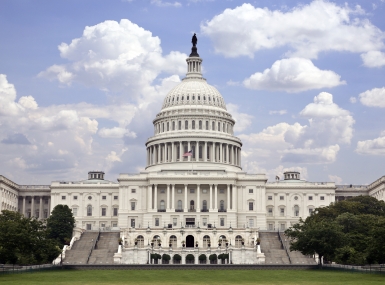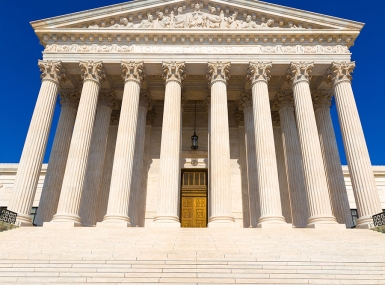Supreme Court looking at Maui County groundwater case

In County of Maui, Hawaii v. Hawaii Wildlife Fund, the Supreme Court will decide whether groundwater is subject to National Pollutant Discharge Elimination System (NPDES) permitting requirements under the Clean Water Act (CWA).
The State and Local Legal Center (SLLC) filed an amicus curie brief arguing that it shouldn’t be.
Maui County injects treated wastewater from wells into the groundwater. Some of the treated wastewater reaches the Pacific Ocean. The Hawaii Wildlife Fund sued the county arguing it was required to obtain an NPDES permit for these discharges.
Per the CWA, a party must obtain an NPDES permit if it discharges a pollutant from a point source to a navigable water. Wells are point sources and the Pacific Ocean is a navigable water. But the treated wastewater in this case doesn’t go directly from the well to the ocean. It is conveyed through groundwater. The Ninth Circuit assumed without deciding groundwater isn’t a point source or navigable waters.
The Ninth Circuit held that the CWA requires Maui to get an NPDES permit in this case. It concluded that the discharges in groundwater are point source discharges because “nonpoint source pollution” excludes, for example, roadway runoff that isn’t “collected, channeled, and discharged through a point source.” Here the pollutants are collected in wells. According to the lower court, they are also “fairly traceable” from the point source to the navigable water and reach the navigable water at “more than de minimis levels.”
The SLLC amicus brief provides a number of examples of discharges from water supply, sanitation and flood control services which will require NPDES permits under the Ninth Circuit’s theory. Obtaining such permits will be costly and unnecessary. The brief explains how the NPDES permitting process is a poor match for regulating groundwater because it is designed to regulate surface water only. Finally, the brief argues that the “text, structure, and legislative history of the Clean Water Act demonstrate Congress’s intent to leave the regulation of groundwater to the states.”
J.G. Andre Monette, Shawn Hagerty and Rebecca Andrews of Best Best & Krieger, wrote the SLLC amicus brief which the following national organizations joined: National Association of State Legislatures, National Association of Counties, National League of Cities, International City/County Management Association, and the International Municipal Lawyers Association.

Attachments
Related News

U.S. Congress passes reconciliation bill: What it means for counties
On July 3, the U.S. Congress passed sweeping budget reconciliation legislation.

White House signs executive orders to advance nuclear power
On May 23, President Trump signed four executive orders focused on expanding the nuclear energy industry. The executive orders aim to position nuclear power as a key contributor to energy reliability, economic growth and national security — especially as artificial intelligence, advanced manufacturing and military operations increase demand for stable, high-density power sources.

U.S. Supreme Court issues unanimous decision in landmark National Environmental Policy Act case
On May 29, the U.S. Supreme Court issued a unanimous decision in Seven County Infrastructure Coalition v. Eagle County, Colorado that will reshape requirements for National Environmental Policy Act (NEPA) environment impact statements.
